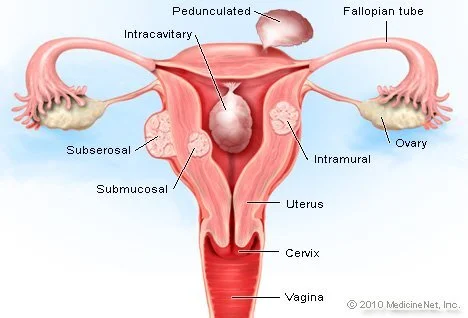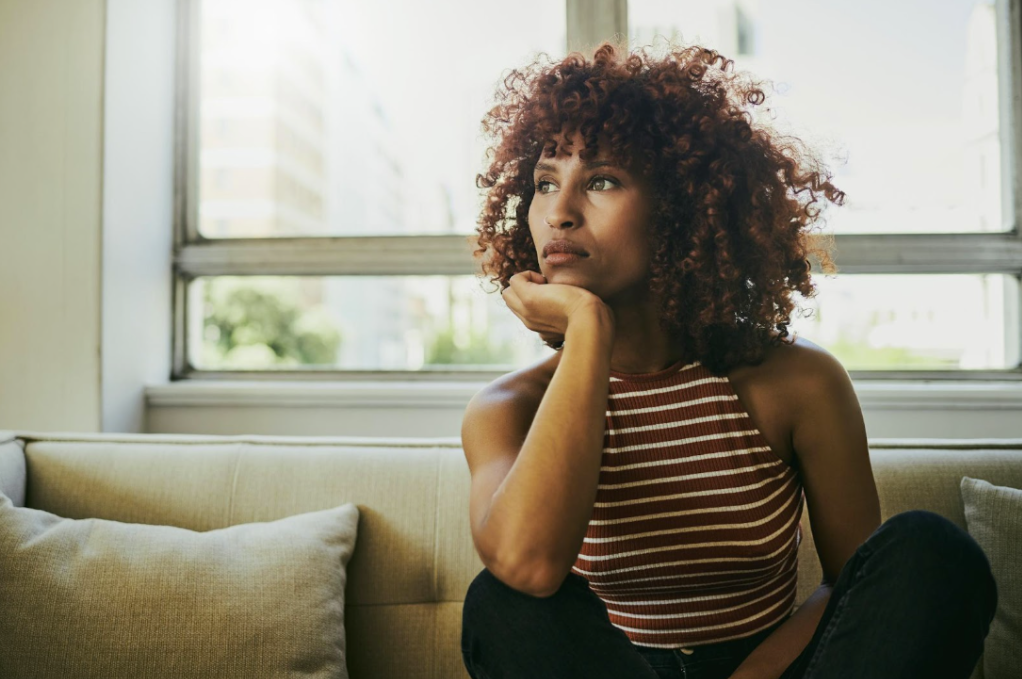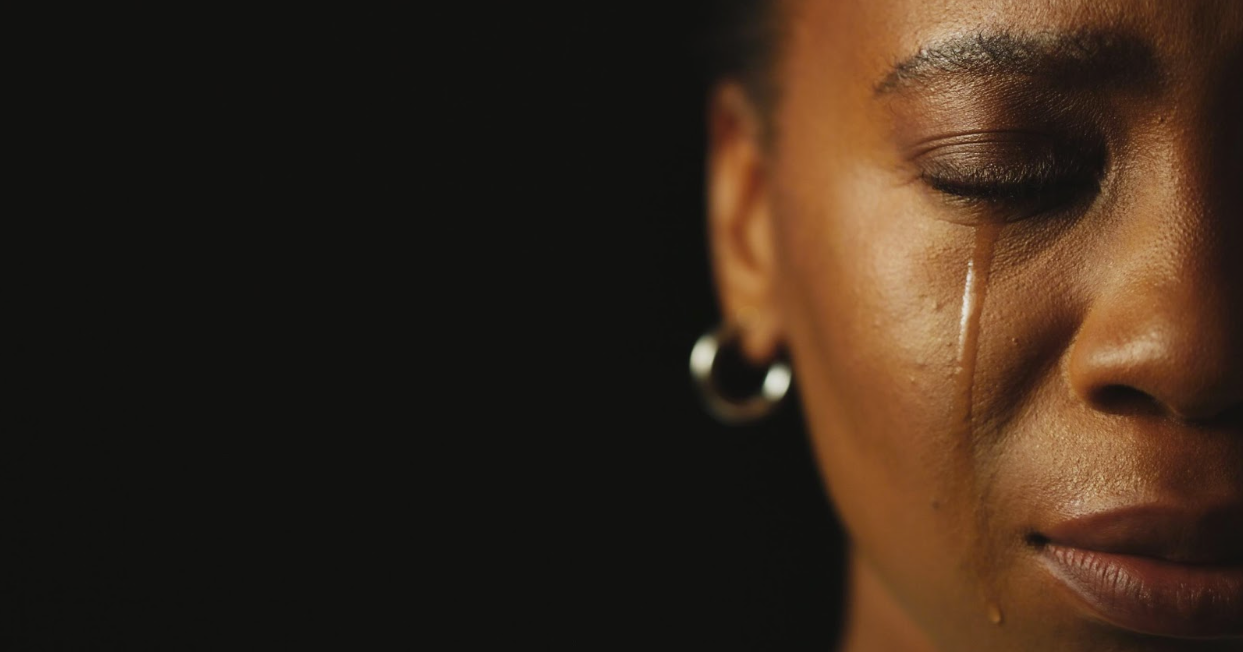Black Women Are Twice As Likely To Develop Fibroids, Why?
By: Emily-Ann
What Are Uterine Fibroids?
Uterine fibroids are benign lumps that grow in the uterus or around it. Fibroids are more common in African American women and Afro-Caribbean women. This condition can cause heavy bleeding during menstruation, longer periods, passing blood clots during menstruation, anemia due to large amounts of blood loss during your period. Painful periods, stomachs can appear to be pregnant, depending on the size and severity of the fibroids and location.
While some experience no symptoms, others experience constipation, frequent urination, lower back back pain, painful intercourses, and severe PMS. Studies have shown a link to low levels of vitamin D. Commonly mistaken for a vitamin, it is a hormone produced in the body naturally when the sun penetrates the skin.
The Three Main Types of Fibroids
Subserosal fibroids: These are the most common fibroids. They can push outside of the uterus into the pelvis.
Intramural fibroids: These fibroids develop in the muscular wall of the uterus.
Submucosal fibroids: These fibroids are uncommon.
Some women experience an interruption of daily activities and lifestyle due to the compilation of fibroids. Women of color specifically black women seem to develop fibroids at a much higher rate than their counterparts. Roughly around 80% of women will experience this condition. Most commonly will experience this diagnosis in their 30’s and childbearing years. Others will have little to no symptoms.
Fibroids are responsible for more than half of hysterectomies in America and sadly women of color are having them at an alarming rate. For those of us who wish to start family planning, hearing this news can be daunting, and sometimes confusing. Like many, I suffered from painful periods that I would miss school lectures, work, and sometimes couldn’t move. I would be stuck in bed and crying because of pain. Even throwing up became something that I went through. It would happen every cycle and when it did, it was horrible. Like many, I assumed having a painful period was just another part of being a woman.
Recently, I learned that periods are not supposed to be this painful, and if you do experience discomfort it should only be little to no pain. Anything greater than this, it was highly advised that I seek professional treatment. During my research and reading different articles, I found some interesting information that I thought I would share with you all. Having fibroids is not the end of the road. There is much scientific research that suggests that the body is estrogen dominant and with build-up of toxins, your hormone level may be imbalanced. It is worth getting a hormone test done by your doctor and coming up with a plan to return your hormone levels in check.
Your body is letting you know you have too much estrogen in your body for your liver to effectively get rid of it. Most of the estrogen is synthetic and is foreign to your body. This can be due to our diet, makeup, perfumes, and hair Chemicals we use like, relaxers in the black community.
How to Rid Your Body of the Extra Estrogen Build Up?
Do a little research on what is the effective ways to rid the body of extra estrogen your body does not need. Keep in mind it will take some time to reverse this, and remember you didn’t get like this overnight. Most likely it took years, so reversing this will take time. I learned getting your cycle in sync again is part of that battle. Here is what I learned about reducing the amount of extra estrogen in your body.
1. Change your diet, get rid of white flour, white bread, white rice, and white sugar. Get more fruits and vegetables in your diet. Fiber is your best friend, and juicing is something to also look into.
2. DETOX your body, most importantly the liver, which is responsible for balancing hormones as well as so many other important things in the body.
3. No soy products, as they may be filled with estrogen. Fibroids love estrogen and feed on that!
4. No more drinking out of plastic bottles or eating out of plastic items. Opt for BPA free and glass containers and cups.
5. Take inventory of skin products and do an overhaul where possible.
6. Look for more organic materials.
7. Remove all plastic cookware in your kitchen, which could be contributing to your condition.
8. Lower your stress level, easier said than done I know.
9. Get in enough exercise. Try doing Yoga and pilates that are geared toward fibroids. There are plenty of videos on exercises you can do at home.
10. Think about getting messages or acupuncture to help with the womb area.
11. Reducing inflammation in the body can also help. Please, remember these are suggestions from my research,and any changes you make to your diet or normal activities related to your health should be consulted with your healthcare provider first. The best way to find out if you have fibroids is to have your doctor perform an ultrasound and pelvic exam. This can help determine the location, how many, and size the fibroid. There are different types of fibroids and an ultrasound can help identify them accurately. The diagram below shows the common fibroid location found in the female uterus.
Before you choose the many surgery options take a moment to look at alternative methods of pain management for decreasing or eliminating fibroids. Some natural pathetic doctors specialize in women’s reproductive health. These doctors address the whole body, not just the symptoms associated with fibromyalgia. Did you know that black women between the ages of 18 and 30 have more fibroids, compared to only 6% of white women? This number increases by 60% by the age of 35, and Black women are two times more likely to have recurring fibroids, and complications related to this condition.
Importance of Cycle Regulations
The importance of having a regular cycle isn’t just about pregnancy, but also just to have a healthy cycle in general. Taking care of the womb, where you give birth and create the most precious gift of all is vital. It’s the place where you do the best creation in this lifetime. There are a few podcasts that I listen to for educational purposes. I have listed them below, listen to them on your preferred podcast platform. I use the Apple podcast.
Fertility Friday Radio, hosted by Lisa Hendrickson
Jack Food Heaven, hosted by Wendy Lopez, and Jessica Jones
Practically Fertile, hosted Adrienne Wei
Get Pregnant Naturally, hosted Sarah Clark
There is still so much that we don't understand about fibroids, and educating ourselves on this issue can help us make better lifestyle choices. I will be doing part two of this post. I will discuss natural ways to address fibroids. This includes herbs and food to help heal the body. Surgery is not the only answer for addressing this problem.
As black women we should take back our power to decide how we handle our relationship with our reproductive system and womb. It has become even more so imperative that we advocate for ourselves and loved ones. Let us know about your experiences with your period and if you’ve been diagnosed with Fibroids. We would love to hear your stories and have open discussion on the topic.
Disclaimer: I am not a health care professional, nor do I claim to be one. Please consult your doctor or health care provider before trying any of these suggestions as they know your medical history.







